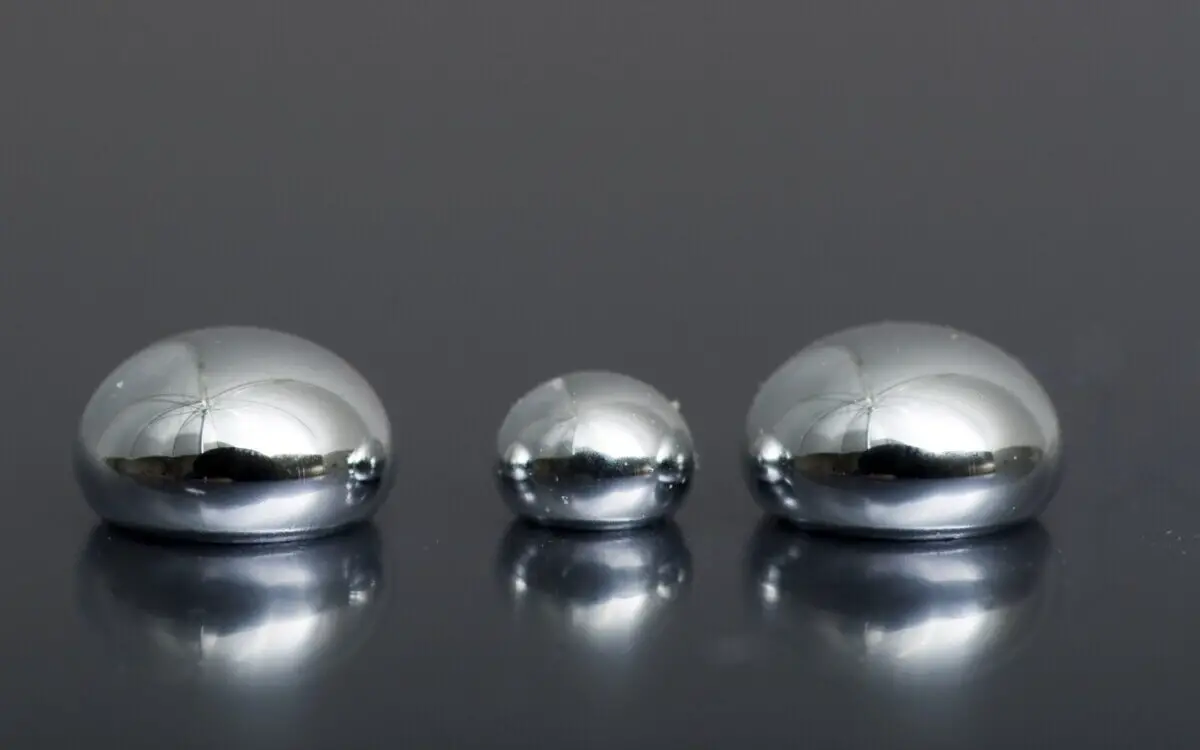Filtered water is recommended for drinking (over tap or bottle water) because filtration removes harmful contaminants and nasty odors from water, while also improving its taste. If you usually drink bottled water, choosing filtered water instead can save money, is better for the environment and can boost your hydration. It is can also help encourage other healthy habits.
While staying hydrated is important, it is also equally important for the water we drink to be safe and free of contaminants. Many of us are choosing to invest in water filters for our home, but have you ever wondered what the benefits of drinking filtered water are?
In this article, we discuss why you should be drinking filtered water and why it’s a better option than drinking unfiltered tap water. We also explain the different types of water filtration systems available and what to consider when selecting one.
What is Filtered Water Really?
Filtered water is essentially water that has been treated (or cleaned) to remove impurities, contaminants, sediment and other substances that can be harmful to our health.
This process typically involves passing water through a filter, which can be made of different materials, including activated carbon, ceramic, or reverse osmosis membranes. The filter traps any impurities in the water, leaving behind clean water for drinking.
You should know that many modern filters also come with the option of adding certain minerals to your water. Strictly speaking, though, this action is not considered filtration and is usually an extra option (not standard, and not necessary).
7 Reasons Why You Should Drink Filtered Water
1. Lower risk of infections

The biggest risk when drinking unfiltered water is microbial contamination.
Although most water supply systems in the US are already treated to destroy microorganisms (like bacteria and viruses) in the water, no system is perfect.
On top of that, after the water leave the treatment plant it can become contaminated in the commercial pipes and in the pipes in your very own home. There have even been studies which have shown bacterial contamination in US tap water.
If you receive your water from other sources like a well, then the risk of microbial contamination is even higher.
Having a good water filter can help destroy these microorganisms before you drink the water, saving you from potential diseases, especially infections from parasites.
Giardia is one of the most common parasites that can infect us when we drink tap water. While it is usually not present in our water, there are regular giardia outbreaks across the country from contaminated water.
Drinking filtered water removes this risk.
2. Less Unwanted Minerals and Heavy Metals

Tap water often contains contaminants like chloride, fluoride, lead, and other heavy metals, which can have adverse effects on our health. While water treatment plants remove the excess amounts of most contaminants, there is often a residual small amount left in our water.
But chlorine and fluoride are added to our water on purpose. Chlorine disinfects the water, while fluoride is added to help improve our oral health (for healthy teeth).
Heavy metal contaminants are linked with a large range of health problems, including gastrointestinal illnesses, skin irritation, neurological disorders, and even certain forms of cancer.
While chlorine can give the water an unpleasant, chemical-like taste and smell.
Like with micro-organisms, the risk of mineral or metal contamination is much higher if you are using water from a local source, like a domestic well.
Thankfully, most good water filter systems can easily remove these minerals and other chemical compounds, leaving you with clean, contaminant-free water that you can drink safely with no risk to your health.
3. Improves Taste and Odor

One of the reasons why water may taste or smell bad is due to mixed minerals, micro-organisms, added chlorine, or often a combination of these.
When you filter your water, by removing these contaminants, you are guaranteed to have water that doesn’t taste or smell bad.
This is especially true in the case of activated carbon filters, which are particularly effective at removing bad taste or smells.
You should know, however, that sometimes minerals (like calcium) can lend a ‘natural’ taste to your water. This taste may be lost with filtration. To counter this, some modern filters can add these beneficial mineral components at the end or selectively retain good minerals.
Also read about the different ways you can add minerals to your filtered water here.
4. Saves Money

Sure, water filters do not come free of cost, and although most filters are affordable, some modern filters can be quite pricey as well.
However, it is usually just the initial cost of purchase that is high. If you compare drinking filtered water with regular consumption of bottled water, you will notice that you end up saving a lot of money in the long run.
Water filters can also help prevent diseases or at least lower your risk of infection, which would take astronomical amounts of money to treat, making them a very good investment from a financial standpoint and lower medical bills.
5. Good for the Environment

You may go through a liter of bottled water within a couple of hours, but the plastic bottle that remains will be here on our planet for millions of years.
Imagine the amount of waste we’d be adding to our environment if we were to just use bottled water!
In contrast, using a water filter to clean your water and then drink it produces virtually zero waste, making it the obvious way to go if you are concerned about the environment.
If you don’t usually use bottled water, don’t worry filtered water isn’t bad for the environment. There are now several brands of water filters that allow you to purchase replacement inserts for the cartridges and you can return them to be recycled/reused.
6. Can Improve Skin and Hair Health

You may have noticed that your skin feels different whenever you shower or wash your face outside of your home city.
This is because minerals and compounds present in water can directly affect the normal chemical and biological environment of your skin.
A good example would be chlorine, a common water contaminant, which can strip the natural oils from your skin and hair, causing irritation and dryness.
In more extreme cases, contamination with heavy metals like lead and arsenic can cause skin blistering, rashes, redness and thickening.
Filtering water is a safe and effective way to prevent all this, helping you achieve healthy, flawless skin. This also includes washing in filtered water – not just drinking it.
If you suffer from dry, itchy or blemished skin, read this article on how much water you should drink to help improve your skin.
7. Improves Overall Hydration

They say people only value things that they have put effort into achieving – and we think this really applies to hydration as well.
When you install a filter in your home, you put time, effort and money into it, which often ends up becoming a good incentive for you to keep drinking water regularly.
And as we have discussed already, good hydration is key to good health.
But more importantly, filtered water tastes better. With all the contaminants that cause bad odors or tastes removed from your water you are more likely to drink more. It’s like the difference between drinking cold water or warm water on a hot day – you naturally drink more of the cold.
The same goes here. Good tasting water is easier to drink, and anecdotally quenches your thirst better.
Types of Water Filtration Systems
Now that we have discussed why you should drink filtered water, let’s touch on the basics of the different types of water filters that are available so you can choose one that is right for you.
Activated Carbon Filters
Activated carbon filters are common in water filter pitchers, water bottle filters, and are usually one of the filters in reverse osmosis systems and under-sink filters.
These filters work by removing impurities and chemicals through a process called adsorption.
This basically means that the impurities stick to the surface of the carbon molecules, and the water that comes out of the filter will thus be clean.
These filters are effective at removing:
- chlorine
- some pesticides
- organic compounds
- PFAS
- a proportion of some heavy metals (e.g., ~60% arsenic)
Reverse Osmosis Filters
Reverse osmosis filters are highly effective devices that use a semi-permeable membrane and several other filters to remove dissolved solids, such as salt, minerals, and other impurities, leaving behind clean water.
These filters are commonly used in homes and businesses, and they are specifically preferred because they are especially good at dissolving invisible, dissolved contaminants.
In fact, reverse osmosis systems are often the preferred choice for a water filter because of the contaminants it can remove, including:
- heavy metals (including lead, arsenic etc)
- chlorine
- fluoride (some systems)
- PFAS/PFOS
- microplastics
- pharmaceutical drugs
- herbicides and pesticides
Ceramic Filters
Ceramic filters are some of the most budget friendly and the oldest types of filters available today. Nonetheless, they are still very effective at what they do.
Made of a porous ceramic material, these filters are particularly good at removing bacteria, organic compounds and other impurities from water, including:
- Pathogenic bacteria, cysts, and protozoans
- Chemicals like chloroform, fluorides and pesticides
- Sediments and debris
They do so by trapping impurities in tiny pores, so that the water that comes out is clean and drinkable. These filters are commonly used in areas where water sources may be contaminated with bacteria, and could be a great choice for anyone who wants to have a more natural filter in their home.
Ultraviolet (UV) Filters
UV filters are advanced, modern filters that use ultraviolet light to destroy viruses, bacteria and other microorganisms that may be present in water.
While these are often called filters they are actually just a light bulb. They deliver powerful UV light to kill (not just remove) germs and other microorganisms, but because they don’t filter the water they cannot remove other contaminants, like chlorine or heavy metals, that can make your water taste bad.
Although they can be used alone, it’s better to use them in combination with other filters. That way your water will be filtered as well as germ-free guaranteed. UV-lights can often be added to reverse osmosis systems, and occasionally under-sink filters.
Ion Exchange Filters
Ion exchange filters remove dissolved minerals and metals from water, such as calcium and magnesium, which can cause water to be hard.
When used together with activated carbon filters, they can remove a huge range of contaminants that is only second to reverse osmosis systems. For this reason many water filter pitchers and under-sink filters use ion exchange.
Ion exchange is particularly useful for removing:
- Heavy metals (e.g., arsenic, iron, lead)
- PFAS/PFOS
- Fluoride
- Herbicides and pesticides
These filters work by exchanging these minerals with sodium or potassium ions (or other elements), which are less harmful to our health.
What to Consider When Choosing a Water Filtration System?
Type of Contaminants
As we discussed earlier, different filter types are good at filtering out different types of contaminants. We recommend spending some time to understand the type of contaminants in your water before choosing a filtration system.
Or if there are particular contaminants you want to remove then target those specifically.
At the end, you may choose a standalone or a combination filter to cater to your needs.
Cost
Not all filters cost the same.
Thankfully, there are filters available in almost every price bracket, depending on the type and quality of the system. It is essential to consider your budget and especially the ongoing maintenance costs (which may not be apparent unless you really read the instruction manuals and other user reviews.)
Installation Costs
While most filters can easily be installed by anyone, some filtration systems may require professional help – especially reverse osmosis systems and whole house systems.
It’s really important to consider the installation process and any associated costs / availability of professionals before selecting a filtration system.
Conclusion
Drinking filtered water means your water does not have harmful microorganisms or contaminants, has a good taste and odor, saves you money in the long run, and is also good for the environment. There are several types of water filtration systems available, each with its advantages and disadvantages. When selecting a filtration system, it is essential to consider the type of contaminants, cost, installation, and water usage.
